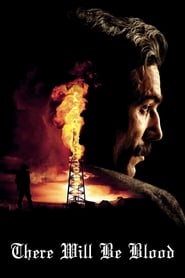There are innumerable ways of removing large-scale politics from films. At the simplest level, the writer [may] literally erase a political plotline completely from the script. A striking example of this is the movie There Will Be Blood, [described] as being “based on” the novel Oil!, published in 1926 by radical activist Upton Sinclair, one of the so-called “muckraking” journalists of that era. The novel contains a powerful critique of capitalism, described at one point as “an evil Power which roams the earth, crippling the bodies of men and women, and luring the nations to destruction by visions of unearned wealth, and the opportunity to enslave and exploit labor”. One of the central characters in the novel is a man called Paul Watkins, who was radicalized as a young man, and who becomes active in organizing labor on the oil fields of California in the 1920s. He and his political friends are constantly harassed by the police. In the end, the police raid a political meeting, Watkins and others are brutally beaten, and Watkins dies a few days later.Now, anyone who has seen the movie knows that this entire story has been excised from the plot. Both Paul Watkins as a character, and the political plotline that had been central to the novel, have been erased from the film. Instead, Paul’s brother Eli, an evangelical preacher, becomes the main antagonist of the oilman Daniel Plainview, setting up an entirely different tension concerning God and “superstition” rather than capitalism and exploitation.
— Sherry B. Ortner, Not a History Lesson: The Erasure of Politics in American Cinema (2013)
The film has a visionary quality: it starts out as a punk-Western and ends up somewhere between expressionism and myth. The mode of the novel is socialist realism.
— Edmund Gordon (London Review of Books)
Barely more than a single word of dialogue is spoken for the first 20 minutes of the film. Plainview’s words mean nothing until he has some measure of success.[…]
When Plainview asks what Eli will use the money for, Eli replies it’s for his growing church, at which he posits himself a healer and vessel for God. Plainview looks at him, smiles, and says, “That’s good. That’s a good one,” as if to acknowledge that, like his own oil business, Eli too has created an enterprise for himself.
[…]
[Upton] Sinclair loosely based his Daniel Plainview character on Edward Doheny, the turn-of-the-century precious metals prospector who dug himself into pitch, thus oil, eventually becoming head of PanAmerican Petroleum and Transport Company.
— Brian Eggert (Deep Focus Review)
Anderson’s [film] is based on Upton Sinclair’s Oil!, which he’s said he encountered by chance in a London bookstore, but this source is just a springboard for a tale that owes as much, if not more, to other prominent sources: Erich von Stroheim’s Greed (likewise a story of a man sacrificing love on the altar of money); Citizen Kane (ditto); the Godfather trilogy (ditto again); the collected works of Stanley Kubrick, specifically Barry Lyndon and the four-movement cosmic spectacle 2001 […]. They all feed Anderson’s fever.[…]
Daniel radiates an almost vampiric mix of hunger, patience and indestructibility; midway through the movie, when he’s riding on a train and a shaft of sunlight unexpectedly hits his face, I half-expected him to burst into flame.
[…]
Compared to Daniel’s obsession with profit and control of land, which is destructive and self-destructive but at least honest, Eli’s faith carries with it a powerful whiff of hypocrisy; the reverend’s angelic face and polite demeanor notwithstanding (Dano is terrific), his character doesn’t quite transcend the stock conception of the preacher man playing an angle. He’s like the corrupt senators, police captains and other public officials in the Godfather films whose soulless rapaciousness was intended to make Coppola’s mafiosi seem like paragons of dark integrity.
[…]
Daniel certainly becomes less controlled after the double hit of a death and a crippling of two people he loved most—but its articulation is wobbly, and the idea of it struck me as less impressive than Anderson’s slow-boil buildup. What most shocked me about the film’s coda was how nakedly it wanted to be shocking, like the blobby emoting that marred long stretches of Boogie Nights and Magnolia. Elsewhere in There Will Be Blood, Anderson creates unsettling effects by having Daniel channel his ambition into structured tasks and occasionally let off little puffs of fury. When violence comes, it’s cold, methodical. The movie’s baroque blow-out ending is effective, but too ’70s movie-inevitable.
— Matt Zoller Seitz (Slant Magazine)
Inasmuch as the ascendancy of paleoconservatism within our government defines the last decade of American politics, There Will Be Blood is a political American film. Its focus on oil, our controversial, cheapest energy option, located near exclusively in quantity amongst the world’s more troubled regions—nearly enough to convince one of the existence of a cruelly ironic higher power—is a cry for help.
— Jeff Reichert (Reverse Shot)
Synopsis: Ruthless silver miner, turned oil prospector, Daniel Plainview, moves to oil-rich California. Using his son to project a trustworthy, family-man image, Plainview cons local landowners into selling him their valuable properties for a pittance. However, local preacher Eli Sunday suspects Plainview's motives and intentions, starting a slow-burning feud that threatens both their lives.

